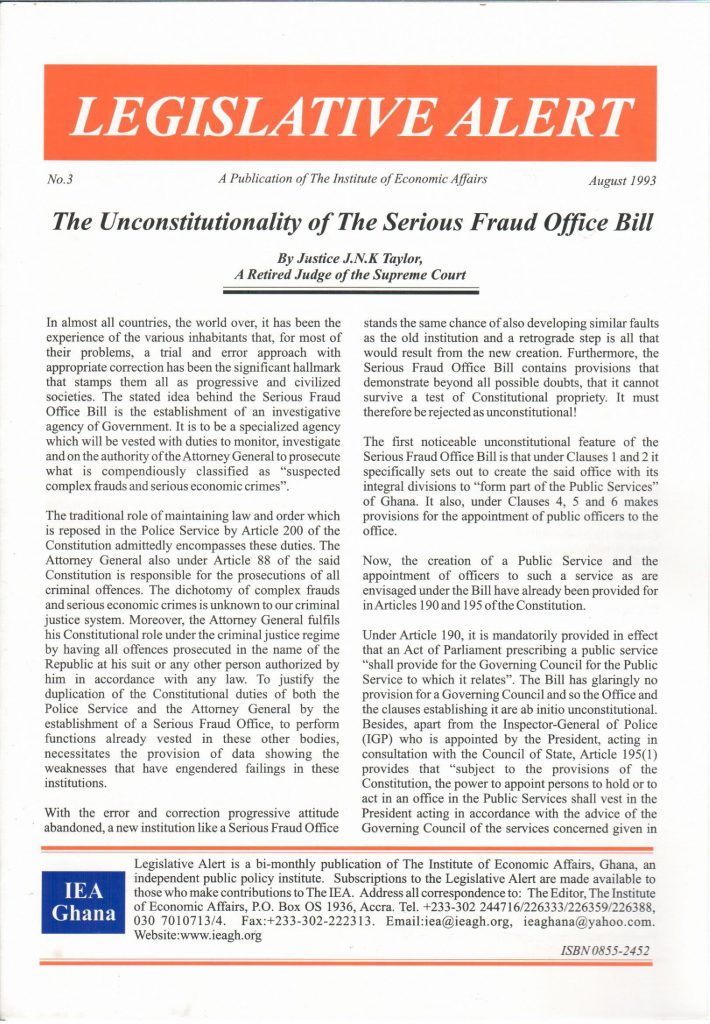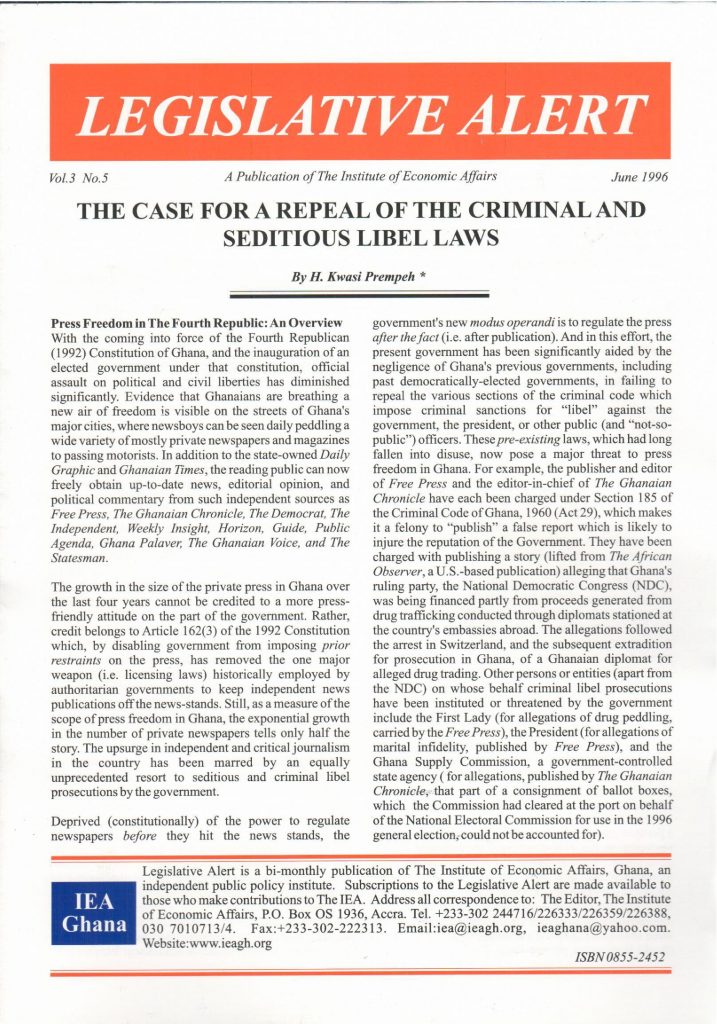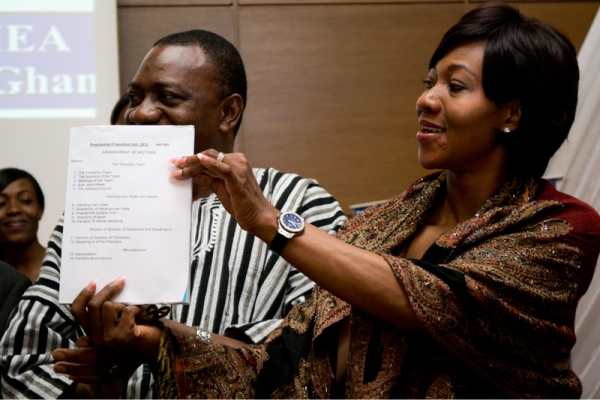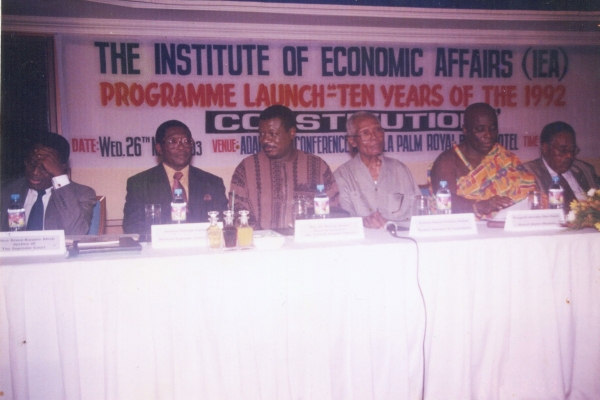Influencing the Reform Agenda in Ghana through Research and Advocacy
Our evidence-based research, backed by persistent advocacy, has resulted in several key reforms that have helped consolidate Ghana’s democracy and promoted sustainable economic development. These reforms include:
Governance
Passage of the Serious Fraud Office Act, 1993 (Act 466)

Through our groundbreaking research and advocacy, we raised public awareness on the unconstitutionality of the Serious Fraud Office (SFO) Bill. Following persistent advocacy, 23 clauses were expunged from the Bill before it was passed as the Serious Fraud Office Act (Act 466) in 1993.
Pictured: The IEA’s 1993 Legislative Alert on The Unconstitutionality of the Serious Fraud Office Bill
Repeal of the Criminal Libel and Sedition Laws, 2001

The IEA won the campaign to repeal the Criminal Libel and Sedition Laws in 2001 following research and advocacy, thereby creating an enabling environment for press freedom in Ghana. Today, the fruits of press freedom are enjoyed by all Ghanaians.
Pictured: The IEA’s 1996 Legislative Alert on The Case for a Repeal of the Criminal and Seditious Libel Laws
Passage of the Whistleblower Act, 2006 (Act 720)
In 2006, an IEA-led initiative, the Whistleblower Bill, was passed into law as the Whistle Blower Act (Act 720). This Act seeks to regulate the manner in which individuals may, in the public interest, disclose information that relate to unlawful or other illegal conduct or corrupt practices of public officials; and provides for the protection against victimization of persons who make these disclosures.
Contribution to the Petroleum Revenue Management Act, 2011 (Act 815)
Following the discovery of oil in commercial quantities in 2010, the IEA undertook research and tabled proposals with the view to ensuring that Ghana would not have a re-occurrence of the deficiencies that had characterized the management of other resources, such as gold and diamond. Among the proposals made was the need to establish a Heritage Fund to ensure that future generations also benefited from the revenues. The IEA further proposed the establishment of a Stabilization Fund to cushion the economy from future shocks. We further proposed the establishment of a public oversight body to guarantee transparency and accountability in the use of oil revenues. It is gratifying to note that these and other proposals of the IEA were incorporated into what in 2011 became the Petroleum Revenue Management Act (Act 815).
Passage of the Presidential (Transition) Act, 2012 (Act 845)

In furtherance of our mission of consolidating Ghana’s democracy, the IEA in 2007 drafted the Presidential (Transition) Bill. The Bill was passed into law as the Presidential (Transition) Act (Act 845) in 2012. This piece of legislation provides a framework for managing the political transfer of power from an out-going democratically elected President to an incoming President. The law’s benefits also transcend regime change. Its strong attributes in the areas of accountability and institutional reform are valuable mechanism regardless of the election cycle, as the Act also aims to ensure the effective functioning of government machinery.
Key Bills in the Pipeline
In addition to the above key reforms, the IEA has initiated several Bills which are yet to be passed into law. These include:
- The Right to Information Bill (1996)
- Public Funding of Political Parties Bill (2007)
- Revised Political Parties Bill (2007)
Contribution to 1992 Constitution Review Process

Another significant contribution to the deepening of Ghana’s democracy is our research and advocacy that led to the review of the 1992 Constitution. Following research and nationwide public consultations, the IEA put forward over 25 proposals for the reform of the 1992 Constitution in a study dubbed the Democracy Consolidation Strategy Paper. Several of our proposals were considered as part of Ghana’s Constitutional Review process and a number were accepted and are contained in both the Constitution Review Commission’s (CRC) report and the Government White Paper. Some of the accepted proposals include the need to have a ceiling on the number of Supreme Court judges that may be appointed and the recommendation that chiefs should remain under the constitutional injunction that bans them from active partisan politics.